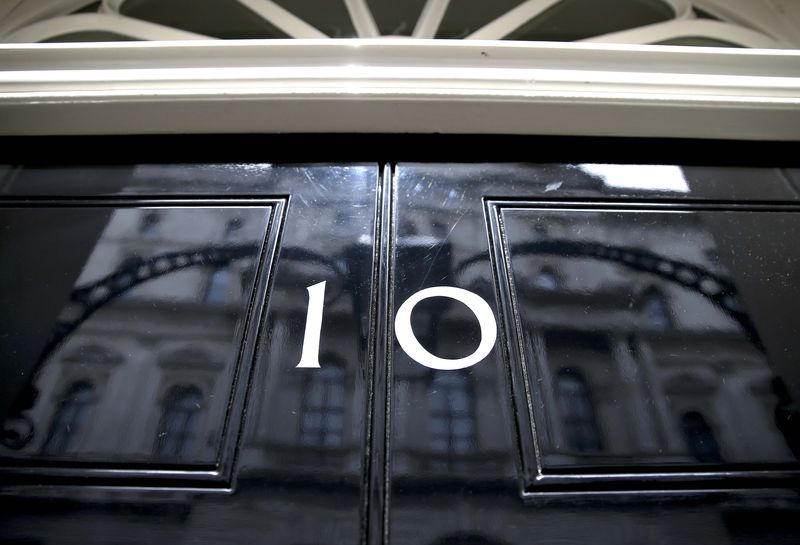By Francesco Canepa
LONDON (Reuters) - Option prices suggest The FTSE may see its biggest swing in two years on Friday, when investors get their first chance to react to the result of one of the closest UK elections in decades.
Such a move would mark a break from market behaviour in recent weeks, which so far has only seen concern over the election hit specific sectors such as utilities or more domestically exposed stocks.
The FTSE 100 (FTSE) could be set for a 3 percent swing on May 8, according to BNP Paribas (PARIS:BNPP) calculations based on the premium attached to FTSE 100 options due to expire next week compared with their June counterparts. The FTSE has not risen or fallen by 3 percent in one day since mid-2013.
The swing is not a sure thing. Options contracts in circulation as a hedge against risk remain historically low in the current era of cheap central-bank cash that has pumped up asset prices. And even though the election is too close to call, the FTSE 100's components are heavily globalised and have broadly shrugged off politics.
However, even if prices may be distorted by supply rather than investor demand, BNP's research suggests growing interest in hedging around election season.
"The spike in May volatility has been very recent ... so it may be possible that dealers have been marking up," said Ankit Gheedia, a derivatives strategist at BNP Paribas. "But the appetite for hedging UK equities has been structural and persistently high."
Volatility on at-the-money FTSE options due to expire on May 15 - a measure of the price investors are prepared to pay to buy or sell the FTSE at its current level over the next nine days - is 20 percent, compared to 14.7 percent on the June options.
This is unusual because, in the becalmed market environment that has prevailed for the past three years, option volatility on main European equity indexes has been higher for contracts further into the future.
It resembles, on a smaller scale, a rise in protecting against big swings in sterling's exchange rate over the next week, currently at its highest since the May 2010 British election.

The broader FTSE 100 volatility index (VFTSE) of option prices has also risen 50 percent since mid-March, even though it remains at a relatively low level at 16.8 points compared with a peak of 40 points around the previous election.